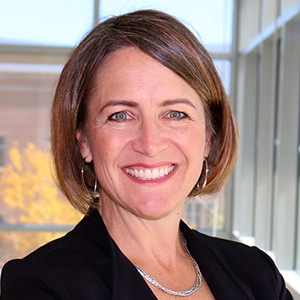Health Outcomes and Ambulatory Care Post-Doctoral Fellowship
This two-year Health Outcomes and Ambulatory Care Fellowship is designed to prepare PharmD graduates for a career in an ambulatory, managed care, or academic setting. The program offers personalized training and mentorship to help the Fellow build expertise in healthcare quality improvement, outcomes research, and clinical practice. The Fellow will participate in population health quality improvement activities, including a project to outreach patients with care gaps related to medication use for migraine, and the opportunity to collaborate with the American Medical Association on a system-wide hypertension quality improvement initiative. Additionally, the Fellow will provide ambulatory care clinical services in a primary care clinic, have opportunity to participate in the education of pharmacy students, and take relevant classwork.
The fellowship will be customized to align with the Fellow’s specific needs, providing personalized guidance and support to help them achieve their professional goals. Throughout the fellowship, the Fellow will engage in a dynamic, collaborative academic setting, benefiting from diverse interdisciplinary interactions and extensive networking opportunities within a large academic medical campus. By the end of the fellowship, the Fellow will be well-prepared for a career in academia, managed care or population health, or industry.
Program Director

Sarah Billups PharmD, BCPS
Associate Professor, Director of Population Health
- Department of Clinical Pharmacy
- Secondary Appointment - Department of Internal Medicine, School of Medicine
Email Address:[email protected]
Primary Phone:303-724-9065
Mailing Address:
- CU Anschutz
Pharmacy and Pharmaceutical Sciences Building
12850 East Montview Boulevard
Office: V20-1127E
Aurora, CO 80045
Dr. Billups works in the Office of Value-Based Performance at University of Colorado Medicine where she leads development, implementation, and evaluation of population-management strategies to improve quality outcomes in the patients cared for by CU Medicine providers. She also serves as Co-Director of the Quality Evaluation Support Team (QUEST), which supports evaluation of Medicaid-funded projects through CU Medicine to improve the care of the Medicaid population.
She is interested in researching ways to deliver healthcare more effectively and efficiently using innovative care models, especially those involving pharmacists, pharmacy trainees, and technology.
Areas of Expertise
- Population Health
Education, Licensure & Certifications
- Ambulatory Care Research Fellowship, University of Colorado Denver (1996-1998)
- Pharmacy Practice Residency, Meriter Hospital, Madison, Wisconsin (1993-1994)
- Doctor of Pharmacy, University of Wisconsin (1992)
- Bachelor of Science in Pharmaceutical Sciences, with distinction (1990)